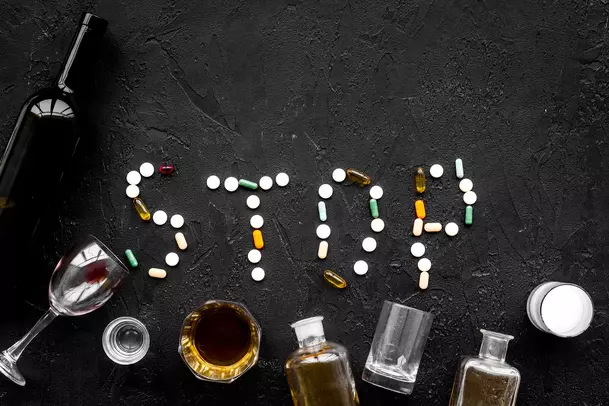11

Wine is an alcoholic beverage made from fermented grape juice. Most of the calories in wine come from alcohol and various amounts of carbs. It’s common to enjoy a glass of wine as you catch up with friends or unwind after a long day, but you may wonder whether drinking too much wine can cause you to gain weight.
Content disclaimer
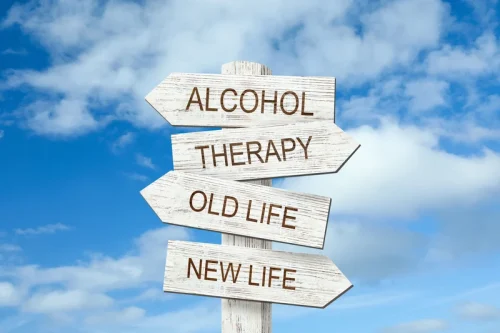
Resveratrol is linked to decreased rates of heart disease, contains anti-aging properties, and may even help you lose weight. Some research even suggests that a moderate amount of wine can help reduce your body weight. Again, you can drink and still lose weight—just keep it within moderate levels and you should be fine.
How long does alcohol stop fat burning?
How much weight wine can make you gain depends on your level of wine consumption and any extra calories consumed while drinking. Some low-quality winemakers add sugar to their end product before bottling to adjust the taste. If you’re trying to cut back on calories, consider switching to light beer, which has roughly 100 calories and 6 grams of carbs per can (via MyFoodData). Low-alcohol and non-alcoholic beers are low in calories, too. Either kind of brew is a better choice than regular beer, cocktails, or hard liquors. As a rule of thumb, try not to exceed 12 ounces of beer per day if you’re a woman or 24 ounces per day if you’re a man (via the Centers for Disease Control and Prevention).
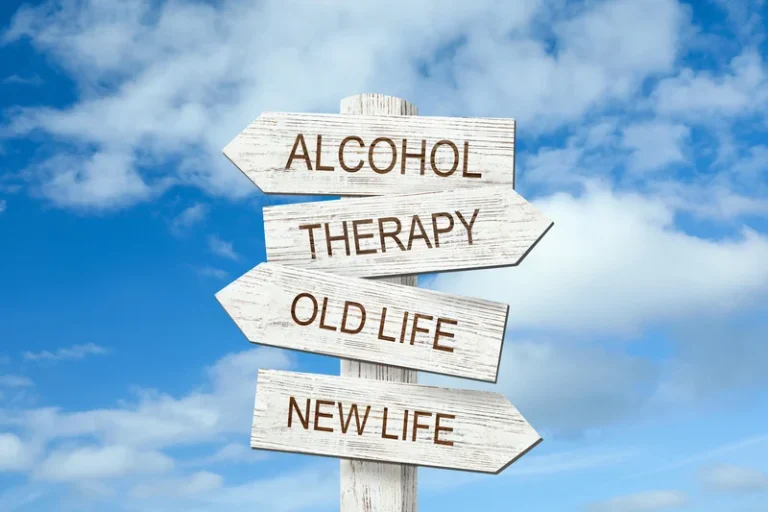
Alcohol Intake and Obesity: Potential Mechanisms
- The more you drink, the more weight you might gain thanks to excess calories alone.
- Drinking too much alcohol can also negatively impact your sleeping patterns.
- But even low amounts of daily drinking and prolonged and heavy use of alcohol can lead to significant problems for your digestive system.
- In fact, you’re feeling so good that you’re congratulating yourself with a glass (or two) of wine in the evenings.
- Finally, thanks to the whiskey’s high levels of ellagic acid, an antioxidant that neutralizes dangerous, free-radical molecules, it can help you avoid cancer (via Medical Daily).
- It may slow down the digestion process and cause temporary gastrointestinal disturbances such as gas or constipation.
As mentioned, whiskey can come in various forms, like bourbon whiskey, Scotch whisky, Irish whiskey and whiskey-based liqueurs. Bloating can result from the inflammation alcohol causes in the stomach and may last a few days, or longer depending on your body and the amount of alcohol consumed. Avoid high-calorie mixers; opt for seltzer or lime to add flavor without the extra sugars. While water retention, bloating, and digestive issues are the primary culprits of (seemingly) overnight weight gain, there are other factors that exacerbate those hangover pounds. When that happens, your body may try to hold on to as much water as possible. This causes water retention and bloating, which can result in a temporary increase in weight when you step on the scale the following day.
- As Mike Roussell, Ph.D., told Shape magazine, cocktail mixers can have more than double the number of calories than the actual alcohol.
- Understanding the physiological and psychological effects of alcohol consumption can help you make an informed choice about whether to raise a glass or take a pass on that next round.
- Some of these confounding factors are further discussed below.

Regular alcohol consumption can lead to health conditions that cause weight gain, among other issues. Women who participated in?binge drinking?were not only more likely to have obesity but were also more likely to be attempting weight loss. If you’re working on losing weight, then you know it can involve a lot of ups and downs (literally). You’ve likely considered what you’re eating, what you’re not eating and of course, how much you’re moving.
- But if you drink heavily like that every night or even multiple times per night, you may find that weight gain sticks around, even when you’re not drinking or recovering from drinking.
- Whiskies typically have an ABV around 40 to 60 percent, although the strongest whiskey has a 92 percent ABV.
- Studies show that those who drink diet soda regularly experience a greater increase in waist size4 compared to those who don’t drink it.
- You can substitute with hydrating options like water, herbal teas, natural beverages, or even weight loss drinks that can be mutually beneficial to your health and waistline.
- You’ve been eating healthier and exercising, so what could it be?
What is the best way to replenish energy reserves in the body? This is why you enthusiastically shove cold slices of pizza in your face the day after drinking. So to recap where we are currently, you’ve just consumed anywhere from 1,000-2,000 calories at the pub, and now you’re inhaling another 1,500-2,000 calories of high fat, high sodium food. If you fancy a good beer or glass of wine, chances are you’re ingesting more liquid calories than you realize.
RELATED: ‘I Ate Carbs For Breakfast Every Day For A Week—Here’s What Happened’
But zooming out to year four, there was a small association between weight gain and any drinking in this group. However, there was no observed difference in weight based on alcohol consumption in the control group that received minimal weight loss and diet advice. Well, the good news is you can still lose bodyweight from consuming alcoholic drinks if you’re doing it right. However, there does drinking make you gain weight is a thin line that is easy to cross if you aren’t keeping your drinking and choices under control.
Ways That Beer May Cause Fat Gain
The calories from alcohol won’t make you feel full leading you to eat more and more. So alcohol will change your body shape with increased body fat, weight gain, and abdominal fat. But keep in mind this is exponentially increased if you’re a heavy drinker, eat bad fattening foods, and aren’t exercising. If you’re doing everything else right in your diet and exercise program, then having an alcoholic beverage or two shouldn’t contribute much to weight gain.
It makes it difficult to choose healthy options
Drinking wine in moderation is the key if you want to enjoy an occasional glass of wine and stick with a diet. The type of wine matters less once you get into heavy drinking, not to mention the harmful effects of alcohol if you regularly overdo it. The Centers for Disease Control and Prevention (CDC) set that standard serving size. If you’re drinking wine with a high alcohol by volume (ABV), a smaller serving size will reduce your alcohol intake. The nutritional value of a glass of wine can vary quite a bit by varietal, style, and even by the winemaker. Generally, red wines offer more health benefits, while dry sparkling and white wines are the lowest in calories.
06
When it comes to how alcohol affects our relationships with those around us.“There is a spectrum that people find themselves on with alcohol. Light-hearted fun can slide into a situation that’s causing harm to your relationship with your friends and family,” says Tyrell. This is because having alcohol in your system means you spend less time in the REM (rapid eye movement) stage of sleep, so you wake up feeling less refreshed. REM is the stage where your brain rests and repairs itself, and it’s linked to better mental https://socamp.ru/jest/15652-krovavoe-kino.html health. Loved ones of people with alcohol use disorder may feel less empathy for them and become more frustrated with them as time passes. We get how challenging this can be, but it may help to learn about how alcohol affects the brain.
Effects of Alcohol on the Brain
- Children and young adults in families with substance abuse are at a higher risk of developing substance use issues themselves.
- When you complete your course of treatment, we’ll ensure you have the appropriate level of aftercare in place so you and your loved ones can enjoy all that sober life has to offer.
- While alcohol intoxication and a pattern of heavy alcohol consumption are robust correlates of IPA perpetration, there has been limited research that examines this association from a dyadic perspective.
- Due to exposure to erratic behavior, broken promises, and possible neglect, they may find it difficult to trust others or may fear forming close connections.
- This can manifest in various ways within relationships, such as engaging in risky sexual activities, driving under the influence, or making impulsive financial decisions.
For instance, a codependent spouse may look to the drinker for constant validation, become overly involved in the person’s emotions, https://mytopgear.ru/topgear/richard-hammonds-top-gear-uncovered-dvd/ and try to “fix” them. When important responsibilities and goals, like one’s career, one’s family, and one’s own growth, are placed on the back burner in favor of drinking, it is feasible for a relationship to become filled with rage and conflict. This may cause the partner to experience emotions of neglect as well as dissatisfaction. Because alcohol use reduces inhibitions, affects judgment, and may enhance aggression, those who drink it are more likely to engage in abusive behavior against their partners, whether it be verbal, emotional, or physical. The connection between alcohol misuse and relationship problems is widely-documented.
Alcohol and Friends and Family.
When you drink alcohol, ethanol molecules are absorbed into your bloodstream and travel to different parts of your body, including your brain, where chemical changes take place. “When people give up or cut back on alcohol, they often say that they feel less anxious, or less depressed,” says Prof Marlow. “For many people this is surprising, because they’ve assumed that alcohol has been helping them to manage anxiety and depression, whereas in fact it’s the opposite. There has long been a common perception that red wine is good for the heart, because it contains an antioxidant called resveratrol. The International Agency for Research on Cancer classified alcohol as a Group 1 carcinogen something proven to cause cancer, which is the highest risk group and puts it alongside tobacco and even radiation. The World Health Organisation (WHO) states that nearly 4 per cent of cancers diagnosed worldwide in 2020 were due to alcohol consumption.
Substance Abuse Effects on Family: Unseen Impacts
If you think alcohol may be affecting your relationships, it might be a good idea to consider speaking with a healthcare or mental health professional. They can help determine whether what you’re experiencing is alcohol use disorder and recommend further evaluation or treatment if necessary. Most people https://newsplaces.net/do-not-save-otherwise-it-will-come-out-sideways.html know that drinking too much can harm your mental and physical health. But alcohol abuse can also hurt the relationships you hold dearest to you—especially the connection between you and your romantic partner. When your drinking causes blackouts, memory loss or sickness, it can significantly impact intimate activities.
06

He has worked for Elevate Addiction Services for over 2 years, and is board-certified in family and addiction medicine. Currently, he is pursuing a fellowship in psychiatry and is affiliated with both UC Irvine and UC Davis. He is interested in General Medicine, Addiction Medicine, Mental Health, and End-of-Life Care (such as palliative and hospice care).
Can yoga and meditation really help after addiction recovery?
We want you to know that you can rebuild your life and create a brighter future with the right approach, support, and mindset. Here are a few strategies on how to rebuild your life for long-term recovery. Alta Mira offers comprehensive treatment for people struggling with drug and alcohol addiction as well as co-occurring mental health disorders and process addictions. Contact us to learn more about our renowned Bay Area programs and how we can help you or your loved one start the journey toward lasting recovery. Suddenly entering a drug and alcohol recovery program and becoming sober is difficult enough, but rebuilding your life after addiction can only complicate things more.
Reach out now and join our supportive
With counselors, medical staff, and peers in recovery available around the clock, those in rehab have immediate access to help when cravings, anxiety, or withdrawal symptoms strike. This constant support system fosters accountability and helps build the discipline rebuilding your life after addiction required to manage triggers and stressors in the outside world post-rehabilitation. Inpatient rehabilitation facilities offer 24-hour care, ensuring that individuals are not only physically safe but also supported during their most vulnerable moments.

Build a support system
Forgiving yourself will be a huge step in the right direction on your journey to learn to love yourself and reclaim your life after addiction. It will help you deal with the guilt and shame you may be feeling over your actions. Unaddressed, these feelings can eat at you and make it harder for you to learn to love yourself and reclaim your life after addiction.
Join Addiction Support Groups
- If you want to expand your friend circle, start by working on yourself.
- She shares her parenting journey on her website Beth & Coop, as well as on TikTok, YouTube, Facebook and Instagram, where she has built a community of more than 1 million people around disability inclusion.
- Then, you should have support from professionals, including your doctor, group therapy, and possibly a psychologist or counselor.
- Studies show that craving has a distinct timetable—there is a rise and fall of craving.
- But cravings don’t last forever, and they tend to lessen in intensity over time.
View our editorial content guidelines to learn how we create helpful content with integrity and compassion. Has been an expert in addiction medicine for more than 15 years. In addition to managing a successful family medical practice, Dr. Hoffman is board certified in addiction medicine by the American Osteopathic Academy of Addiction Medicine (AOAAM). Dr. Hoffman has successfully treated hundreds of patients battling addiction. Dr. Hoffman is the Co-Founder and Chief Medical Officer of AddictionHelp.com and ensures the website’s medical content and messaging quality.
Breaking the Shame Cycle by Viewing Relapse as an Opportunity for Growth

People don’t heal alone, and you don’t have to overcome early hurdles in recovery—such as drug cravings, urges to drink, or other triggers—in isolation either. Matt supervises all the clinical staff at various levels of care, long-term & short-term residential and IOP (Intensive Outpatient), at multiple facilities. On a regular basis, Matt collaborates with Elevate’s President, CEO, COO & Clinical Director to evaluate, plan and monitor program objectives and requirements. Dr. Krishna has 25 years of experience in the field of medicine.

Tips For Transitioning Back to Normal Life After Addiction Treatment
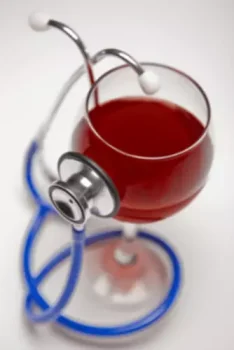
Recovery from addiction is not only possible, it is the rule, rather than the exception. S. National Survey on Drug Use and Health, more than 75 percent of people addicted to alcohol or drugs recover—their condition improves and substance use no longer dominates their life. It is often a long and bumpy path, and relapse is nearly inevitable—but that doesn’t spell the end of recovery.

Seeking ongoing treatment for your substance use disorder, mental health issues, or other underlying issues can be helpful if you find sober living challenging. During individual psychotherapy sessions, you’ll learn that even friends and family members who are happy that you’ve become sober still may not fully support your new lifestyle. They’re just afraid you’ll push your get clean ways and lifestyle onto them. They realize your lives are going in entirely different directions with them on the opposing end of the spectrum. Life after rehab will be tough enough adjusting to life and finding time to discuss in detail what is expected of you. But now that friends and family have given you the ground rules, moving forward, now you’ll have to follow through on it.
20
You can make a difference by being a supportive partner and helping them seek treatment. The Substance Abuse and Mental Health Services Administration notes that families that are affected by alcohol problems have high levels of confusion and stress. This can make children who grow up in such environments more susceptible to substance use and other mental health problems. Loved ones of people with alcohol use disorder may feel less empathy for them and become more frustrated with them as time passes. We get how challenging this can be, but it may help to learn about how alcohol affects the brain. But quitting alcohol can also result in loneliness for many people due to factors such as decreased social opportunities and strained relationships.
Because of the prevalence of alcohol use in college populations, this behavioral pattern may exert significant influence on the health of college dating relationships, thus warranting further examination. Aside from physical and mental abuse, alcohol addiction has https://siliconpower.com/pennsylvania-headquartered-silicon-power-corporation-acquires-new-york-based-applied-pulsed-power/ other, significant consequences for relationships. If children are part of the equation, then there is a safeguarding issue that needs to be addressed. Naturally, the alcoholic parent may not be in a position to take care of a minor unsupervised.
Ways To Spend Time With Friends This Summer
While every person’s response to alcohol is different, your reaction may make your partner uncomfortable. You might act inappropriately in public http://esmeraldashipwreck.com/team/ or appear irritable due to alcohol withdrawal. Research has shown that thought suppression may contribute to alcohol-related aggression.
Now think how many of them occurred when one or both of you were under the influence of alcohol. Alcohol can change the way that people interact with each other, sometimes in negative ways. If you’ve reached the point where it’s hard to communicate with your partner, consider reaching out to a therapist who specializes http://ej1.ru/music/Rehab/0/ in couples and family counseling for help getting back on track. A 2013 study found that of the 52 people who participated, over 34 of them (that’s more than 60%) noted that substance use was a factor for separation. This was especially true in cases where the partner refused to acknowledge an issue or get help.
How Alcohol Addiction Affects Relationships
Katie has always enjoyed a glass of wine to unwind a few times per week. In recent months, her one glass has turned into two or more, sometimes even a whole bottle. Katie has told herself she was just releasing the pressure of balancing work and helping to care for her grandchildren. But she’s finding it harder to get going in the morning and occasionally feels cravings for a drink during stressful times in the workday. Her friends and family have noticed a change but are not sure how to talk to her about it.
- Domestic abuse is a pattern of behavior where one partner attempts to gain power or maintain control over the other.
- Alcohol has the potential to change a person’s personality in huge ways.
- Additionally, this information should also be taught in schools to expand their understanding and hopefully reduce the prevalence of alcohol-related aggression.
- As the addiction progresses, they may devise more elaborate excuses to hide their drinking problems.
- He is also a clinical psychologist at CRUX Psychology, a Canadian-based psychology practice offering online and in person services.
13
Dr. Stanton Peele, recognized as one of the world’s leading addiction experts, developed the Life Process Program after decades of research, writing, and treatment about and for people with addictions. His work has been published in leading professional journals and popular publications around the globe. I can’t tell you that AA/NA didn’t help you — either it did, or it was there for you when you got better.

It was like something clicked inside his brain and he was instantly hooked on the booze again. Experts think this occurs because the neural circuits involved in stress and mood are the same circuits involved in the brain’s reward system. For this reason, stress can trigger the same brain circuits that were triggered when you sought alcohol in the past. This means stress can lead to cravings, which can lead to a relapse. The longer you abstain from alcohol, the better your chances of success.
Mood Swings, Brain Fog, and Anxiety
“I am in my first hours of sobriety. I just took the quiz for withdrawal symptoms and scored 60% moderate to severe. Funny, because my average hangover is usually worse than this.” For many, the first day of abstinence usually follows a day of very heavy alcohol consumption—either a binge or a multi-day bender. People can experience https://g-markets.net/sober-living/when-does-alcohol-withdrawal-brain-fog-go-away/ a wide range of symptoms—ranging from mild to moderate to severe—that start and stop at different times for each person. Most people who make their way into recovery have left a lot of pain and suffering in their wake. Feeling guilty or ashamed of past behavior or actions during active addiction is natural and healthy.
It’s important to remember that you never have to give yourself up to make other people comfortable—ever. Whether you’re stating a one-sentence response (“I don’t drink”) or using a small excuse, the only thing to consider is whether you are comfortable, and whether your boundaries are being upheld. When you share that you’re no longer drinking, people might be freaked out by your decision; you may have just thrown a wrench in their search for their own OK-ness, took away part of their own confirmation of their behavior and lifestyle.
How Do You Become Sober?
We just have to use them on the outside, where they become indispensable weapons against a return to the abyss of our disease. After 30 days of sobriety, physical withdrawal symptoms should be well in the past. People in recovery continue to report the benefits of not drinking alcohol after 13 days of abstinence. Art Therapy for Drug & Alcohol Addiction Recovery For the vast majority of people, the physical symptoms of alcohol withdrawal have passed by day seven. “Now that most of the physical symptoms have gone away, time to work at staying sober. This is usually where I mess up and drink because I am feeling better and think I can handle it. I know I can’t.”
21
If your family is affected by alcohol use, it is important to seek help. Adult children of alcoholics may experience shame for several reasons. Alcoholism is a pattern of alcohol substance use where a person has difficulty controlling their drinking. Alcohol use disorder is a mental health condition where the person is often preoccupied with alcohol. They may continue to use alcohol even though it causes problems, whether with family, their physical health, their personal or professional relationships, or with holding down a job.
That “emotional support” they might need may be disguised as doing a simple favor, but it could end up contributing to the problem — especially if it gives others an excuse to continue bad behavior. I thought that I could fix my father — like in the movies, when the character you love is about to die and there’s a dramatic scene right before the bad guy surrenders. The most popular is probably theLaundry Listfrom Adult Children of Alcoholics World Service Organization. I developed this list from years of clinical practice with ACOAs. Groups like Al-Anon and ACA (Adult Children of Alcoholics) provide free support and recovery.
Often, people start drinking socially and find they struggle to stop when others are able to. Alcohol dependence can come on suddenly or without warning, and quitting can feel challenging for many people. Alcohol has a direct effect on the brain, affecting its chemistry and structure. When consumed in excess, alcohol can impair executive function, judgment, memory, and motor skills. It can also lead to long-term cognitive decline and an increased risk of developing neurological diseases such as dementia. In its advanced stages, alcohol addiction can severely impair one’s functioning in everyday life.
Growing up in an alcoholic home, you feel insecure and crave acceptance. The constant lying, manipulation, and harsh parenting makes it hard to trust people. You work hard, always trying to prove your worth and make others happy. You really can’t understand addiction as a child, so you blame yourself and feel “crazy” because your experiences didnt line up with what adults were telling you (namely that everything is fine and normal). Many ACOAs are very successful, hard-working, and goal-driven.Some struggle with alcohol or other addictions themselves. You’re not to blame if you learned to use alcohol as a means of dealing with trauma from your childhood, but you can always take action to learn new, more helpful coping mechanisms.
How to Help an Alcoholic Parent
This state of hypervigilance is a common symptom of both post-traumatic stress disorder (PTSD) and anxiety disorders. Maybe your parent was irritable, easily aggravated, or verbally or emotionally abusive while drinking or in withdrawal. Experiencing these behaviors from a parent can also wear down your self-worth over time. Consequently, you might become more sensitive to criticism and rejection and have a harder time standing up for yourself. All of these behaviors can make it more difficult to form healthy, satisfying relationships.
Internal and External Behavior Issues
Coping with the lasting effects of a parent’s alcohol use can be difficult, but you don’t have to do it alone. Children largely rely on their parents for guidance learning how to identify, express, and regulate emotions. But a parent with AUD may not have been recovery games for groups able to offer the support you needed here, perhaps in part because they experienced emotional dysregulation themselves. Growing up with a parent who has AUD can create an environment of unpredictability, fear, confusion, and distress, says Peifer. These conditions can take a toll on your sense of safety, which may then affect the way you communicate with and relate to others.
Treatment Options
- If you’re enrolled in high school or university, your school may have resources available for children of alcoholics.
- Some studies have shown that children of parents with AUD are more likely to misuse alcohol themselves in adolescence or adulthood.
- We understand mental health challenges firsthand and support your pursuit of well-being with compassion.
- It’s natural to close off your heart as a form of self-protection.
- For those who are unable to commute to counseling or feel safer at home, online therapy is an option.
Adult children may also form enabling and codependent relationships with others who they perceive as needing “rescue” or “help,” to the extent of neglecting their own needs. This response may be a way to place their focus on the overwhelming needs of someone else to not have to examine their own difficulties and struggles. Children of alcoholic fathers may feel embarrassed or ashamed of their family situation, leading to social withdrawal and isolation.
Alcohol use disorder (AUD) is a chronic health condition that can have a serious impact on a person’s life. Convincing your father that he needs treatment won’t be easy, especially if he has tried it before. But the reality is that addiction is a lifelong battle and for many, one stint in rehab simply isn’t enough. But what you can do is educate yourself about addiction, research different treatment centers and options, and provide your father with resources when he is ready. Let him know that help is out there and that you are here to support him—whenever he is ready.
They are also more likely to display rule-breaking, aggressiveness, and impulsivity (externalizing behaviors) in childhood. Although evidence is conflicting, some behavioral changes appear to occur in children, adolescents, and adults who had a parent with AUD. Although the roles of genetics and childhood experiences are intertwined, these children may be more susceptible to substance use and other issues. When you don’t learn how to regulate your emotions, you might find it more difficult to understand what you’re feeling and why, not to mention maintain control over your responses and reactions.
23
Note that there are always requirements to meet before a sober living home qualifies for government grants or subsidies hence you must make sure you meet the eligibility requirements if you want to access this funding option. But over and beyond, all sober living homes are required to adhere to local regulations and ethical standards when seeking funding for their homes. There are several factors that you should consider before deciding where to live after completing a treatment program for a substance use disorder. If you return to your home environment—whether it’s stable and supportive or not—it’s crucial for you to follow your aftercare plan to ensure you continue to get the support and help you need. The service delivery process as it relates to sober living home facility to a large extent depends on the organization and what they stand to achieve. Over and above, you would need a minimum of 10 to 15 key staff members to effectively run a medium scale but standard sober living home facility.
Understand the Industry
Policyholders should be vigilant about their coverage specifics to avoid unexpected financial burdens due to denied claims. With the advent of digital technology, online bank transfers have become a popular method due to their immediacy and security. These transfers allow individuals to send money directly from their bank accounts to the sober living home’s account. Furthermore, mobile payment apps and peer-to-peer (P2P) services such as Venmo, Zelle, and Apple Pay offer a modern and user-friendly way to manage payments without needing cash or checks. Understanding these cost factors is crucial for individuals seeking sober living arrangements, as it allows them to budget accordingly and select a home that aligns with their financial capabilities and recovery needs. The average halfway house is not likely to have many amenities, and the person renting a room there is expected to provide their own groceries, medications, and income.
As you’ve learned, opening and marketing a sober living home comes with many benefits and challenges. After reading through this guide, you’ll find you have many factors to weigh as you consider how to start a sober living home. The Drug Rehab Agency is your partner here to help guide you through the process.
Insurance Coverage Limitations and Exclusions
As a matter of fact, if your intention is to grow the https://appsychology.com/living-in-a-sober-house/ business and operate all across the United States of America, then choosing sole proprietor is not an option for you. Limited Liability Company, LLC or even general partnership will cut it for you. The Southeast accounts for 23.5 percent of substance abuse clinics, according to data sourced from the US Census Bureau’s County Business Patterns. This is slightly below the region’s respective share of the population at 25.4 percent of the nation’s total. Within the Southeast, Florida has the greatest share of industry clinics, measured at 6.5 percent of the total.
The Location of the Facility
Do you want to run a low-structure home with residents doing whatever they want? In any case, it’s important to be intentional about the culture you set, as it ultimately determines your brand and your reputation. The opioid crisis, along with other substance abuse issues, has highlighted the urgent need for effective recovery solutions. Sober living homes fill a critical gap between rehabilitation centers and full reintegration into society.
About Samba Recovery
With this in mind, you’ll want to research the zoning laws of prospective properties. The regulations and zoning laws may differ depending on the city and state of your desired location. The residential property will need to be large enough to accommodate the number of residents you wish to serve. Furthermore, be prepared to face some backlash from nearby neighbors when starting a sober living home in a residential community. Whether you’re a real estate developer, investor, or passionate individual who wants to make a difference, there’s a spot for you in the residential treatment industry!
Starting a sober living home involves various initial costs, including property acquisition, renovations, and furnishing. The Hobbs administration began to grasp the scope of the fraud scheme in the weeks that followed, said Christian Slater, the governor’s spokesperson. Hobbs asked the health department to develop a plan to address it, and asked AHCCCS to prepare for a humanitarian response and create a list of providers suspected of fraudulently billing Medicaid. Snyder did not mention the fraudulent facilities several days later when she went before a legislative committee to discuss a recent audit shortly before stepping down as AHCCCS director. The audit, conducted every 10 years, is used by legislators to evaluate the future of state agencies. It determined, among other findings, that AHCCCS could have made more than $1.7 billion in improper payments between 2019 and 2020 because it did not properly determine providers’ eligibility before making reimbursements.
- Do you think Steven Schwarzmen and Blackstone Group would have purchased Southern Cross, the largest care-home provider in Europe, of this was not a profitable industry?
- By crafting a detailed business plan, you not only prepare yourself for the challenges ahead but also make your sober living home more appealing to potential investors and partners.
- Break down your revenue streams and provide forecasts for at least the first three years.
- He said he took his son home, only for him to go back to Phoenix a month later and enter a new treatment program.
If you intend starting a sober living home facility in the United States of America, you are encouraged to pursue professional certifications; it will go a long way to show your commitment towards the business. Certification validates your competency and shows that you are highly skilled, committed to your career and up-to-date in this competitive market. If you take your time to critically study the various legal entity to sober house use for your sober living home facility business, you will agree that limited liability company; an LLC is most suitable. You can start this type of business as limited liability company (LLC) and in future convert it to a ‘C’ corporation or an ‘S’ corporation especially when you have the plans of going public.
- Residents should choose a payment method that ensures timely and secure transactions, keeping in mind any additional fees or charges that may apply.
- Furthermore, mobile payment apps and peer-to-peer (P2P) services such as Venmo, Zelle, and Apple Pay offer a modern and user-friendly way to manage payments without needing cash or checks.
- At least 10 behavioral health providers, including Beyond4Wallz, received suspension notices from AHCCCS that month.
- Usually, they look for a secured and conducive home to enroll in so that their recovery and perhaps cure from addiction will be smooth and fast, hence the need for a sober living home.
He explains that the perfect sober house has lots of bedrooms, and is far from nosy neighbors. This is because these houses can be turned into overcrowded pensions that no one wants to live in close proximity. Unfortunately, there are some houses that are only profitable and nothing else. Another con of owning a sober living home is the high responsibility that comes with it. Trust me, owning a sober living home is not for the faint-hearted, it requires that you will be in charge of the welfare and recovery process of the residents in your facility.
02
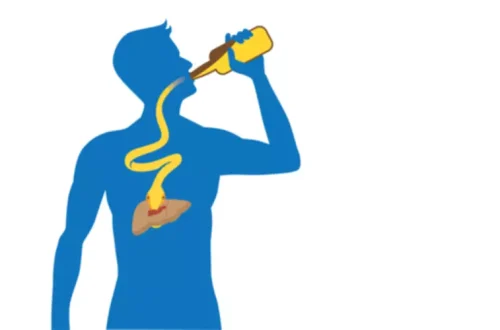
It plays a vital role in repairing relationships, improving communication, and educating family members on how to support the individual’s recovery process. It is important to note that the effectiveness of outpatient programs how to overcome alcoholism may vary depending on the severity of addiction and individual circumstances. Therefore, it is essential to consult with a healthcare professional who can assess and determine the most suitable treatment option.
Build your own personalized toolkit
For those struggling with polydrug abuse, read our complete guide on how to overcome multiple addictions. By actively steering clear of triggers and implementing these steps, you will enhance your ability to maintain sobriety and effectively prevent any chances of relapse. Inpatient rehab also provides individuals with the opportunity to connect with peers who have faced similar experiences, fostering motivation and the development of meaningful relationships.
How do I stop drinking?
- For 3 to 4 weeks, write down every time you have a drink and how much you drink.
- These problems may interfere with their professional and social relationships or even their own health.
- According to one model of behavior change known as the transtheoretical model, making any kind of change involves a process that starts with pre-contemplation and moves into contemplation.
- Good alcohol treatment prepares you for these challenges, helping you develop new coping skills to deal with stressful situations, alcohol cravings, and social pressure to drink.
- The symptoms listed above may be a sign of a severe form of alcohol withdrawal called delirium tremens, or DTs.
That said, there are four general stages of recovery, as compiled by addiction expert Steven M. Melemis, MD. These stages can help prevent relapse and support people to live healthier, fuller lives. If you think you may have a drinking problem, you’re definitely not alone.
- Group therapy or a support group can help during rehab and help you stay on track as life gets back to normal.
- When someone gets too drunk or hungover to fulfill their basic responsibilities in life, they often rely on those around them to get the job done.
- Embark on a journey towards a healthier and fulfilling life as we delve into the world of addiction treatment options.
- It may also be useful to rehearse the intervention with those involved prior to approaching the person with AUD.
- Moderate to heavy drinkers can also benefit from medical supervision in the acute withdrawal stage.
- Just as every person is unique, the manner in which you go about recovering from addiction must be unique and tailored to your specific needs to be optimally effective.
Are You Feeling Suicidal?
- You might reach for alcohol when you’re really just thirsty, says Crews.
- Your liver can start to heal, your risks of heart disease and cancer go down, and you may begin to sleep better.
- An addiction is a brain disorder, after all, and not something that’s easily resolved.
- You might also want to let those friends who drink, use drugs, or engage in addictive behaviors know that you are planning to change.
The challenge of this stage is to essentially develop and maintain healthy life skills that will serve you for a lifetime. An exciting part of this period is that it can lead you to a happier life full of welcomed change and constant improvement. This stage typically starts 3–5 years after you’ve stopped drinking. People often need to address past trauma or familial issues during this time.
How can I find local treatment facilities for addiction recovery?
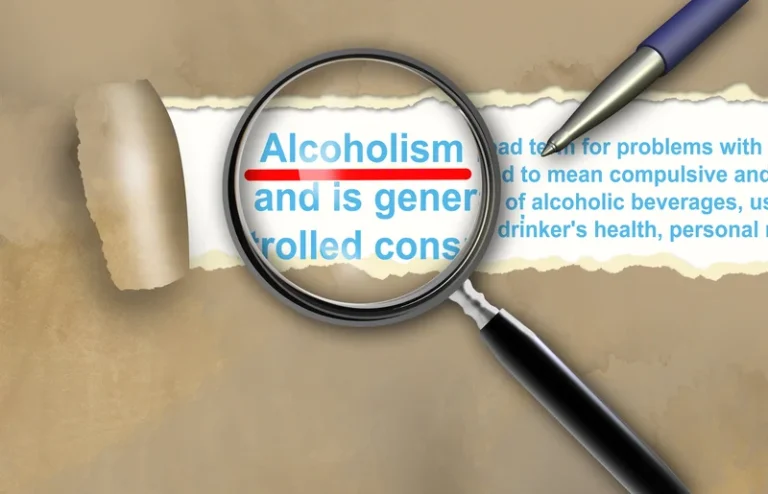
“You could use a calendar, journal or any number of tracking apps.” Drink Control Alcohol Tracker or Less are two examples of free tracking apps available on iOS devices. You’ll get a 100% custom plan, then use daily texts to track your progress and help you stay on target. Becoming more aware of your alcohol triggers and reasons for drinking can help you plan ways to help manage the urge to drink. It is important to understand the root causes of addiction and how it has affected your life.
Ways to Manage Alcohol Cravings

Are there any resources available for family members dealing with addiction?
